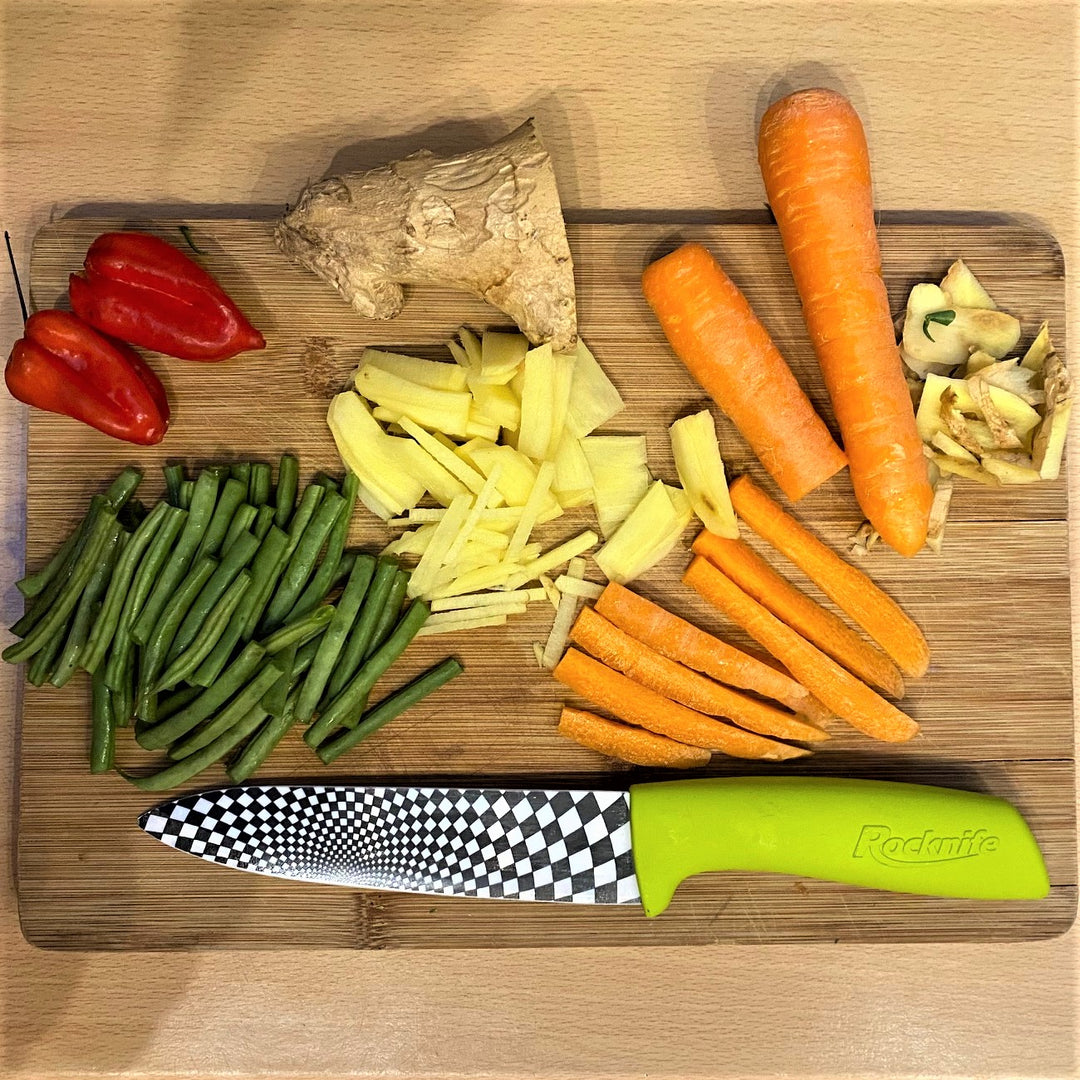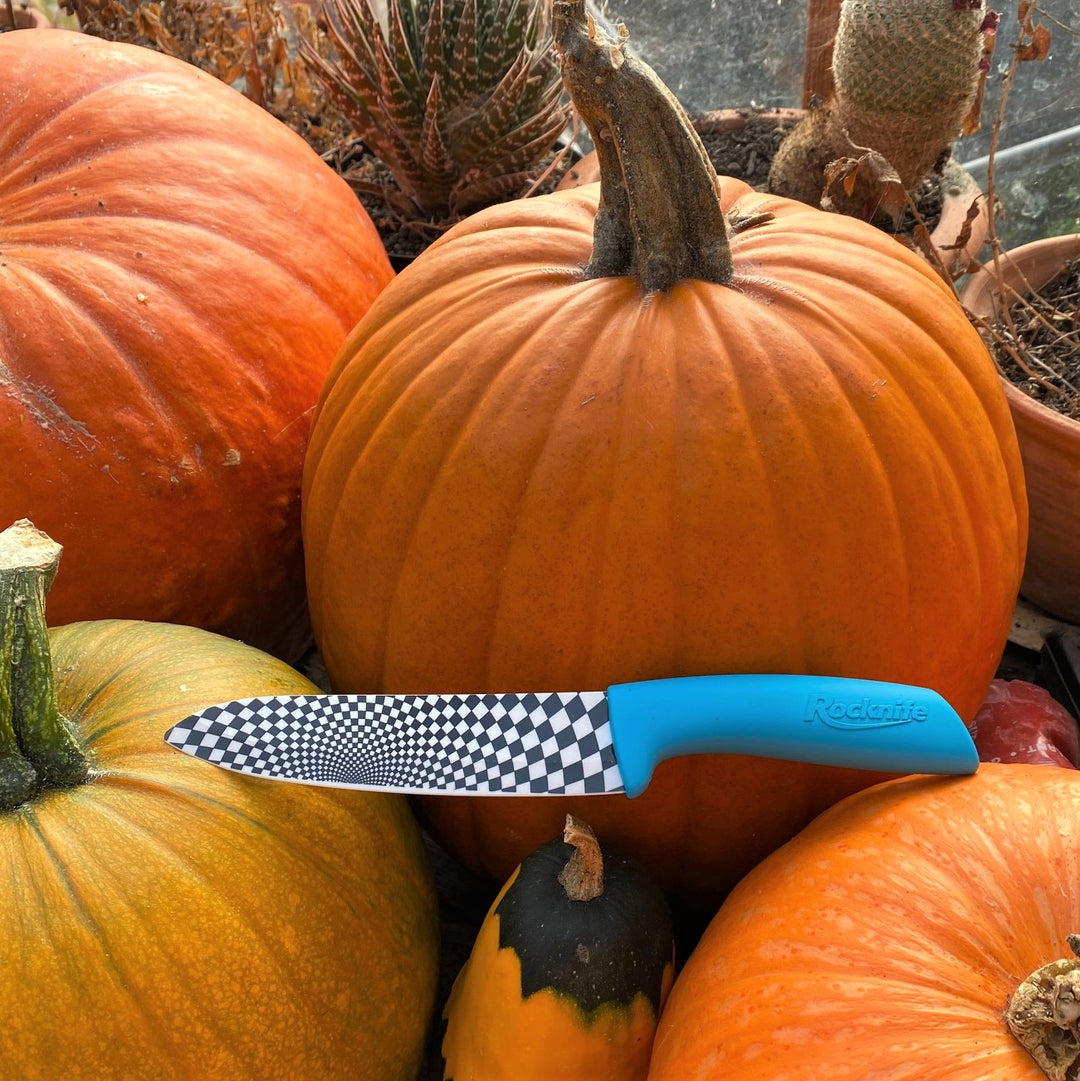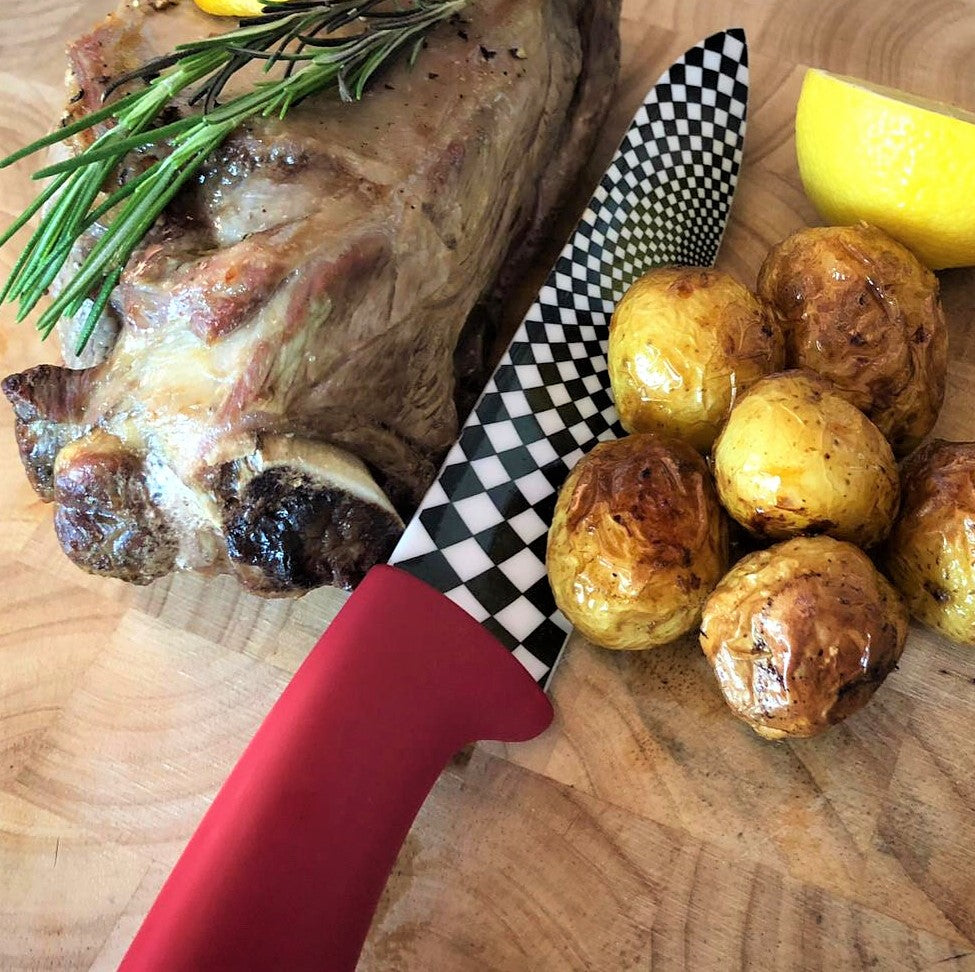Caring For Ceramic Knives
ROCKNIFE
KNIVES IN EVOLUTION
Developed from our own experiences with sharp objects, Rocknife are delighted to share with you some of our ups and downs when caring for Ceramic Knives.
You name it, we've done it

Caring for a Ceramic Kitchen Knife is not a tricky thing and roughly falls into three areas, Handling, Sharpening and Cleaning, where a small amount of vigilance is recommended. Each of these tasks can be done in complete safety and at no danger to anyone.
Obviously, only 18 year olds and over are allowed to buy our kitchen knives. Rocknife's Ceramic Knives are no ordinary knives as they are extremely sharp. Unfortunately, they are also made of Ceramic (a compound based on china in fact) so, just like your best china plates and bowls, you shouldn’t go around dropping your Ceramic Knives
Handling Ceramic Kitchen Knives
Apart from blatantly dropping a Ceramic Knife, you should also take care not to chip it, brushing against sharp edges, speedily throwing it into a dishwasher or accidently placing heavy objects on them.
You should also ensure that you do not turn the knife onto its side and use it to crush garlic or spices. Again, this could result in the blade breaking.
When handling a Ceramic Knife, make sure you keep your fingers out of the way! This may sound obvious, but these knives are much sharper than any steel knife you will have used and this often takes people by surprise when they start using our kitchen knives.
Ceramic Knives should be considered as a slicing knife rather than a chopping knife. For best results, use a slicing motion when cutting and avoid cutting bones, frozen foods or anything that may result in striking the blade against a solid surface. This is not a boning knife and should not be used as such.
We also recommend using a soft surface to cut on like a wooden or a plastic chopping board. Using a hard surface, like glass or granite chopping board, may result in your Ceramic Knife chipping and breaking.
Sharpening a Ceramic Knife
We love our Rocknife’s and hope you will as well. You do not need to sharpen them, in fact, please do not sharpen them as they don’t need it and should not need sharpening for many years to come. It is worth noting that we do have plans to launch a Ceramic Knife Sharpener – but in about 10 years time – as, by this time, we think you might need one.
Washing and Cleaning Ceramic Knives
To wash a Ceramic Knife, simply run under a tap and wipe with a cloth. There, that was easy, wasn’t it?
Additionally, do not leave your Rocknife soaking in a sink where other items could potentially knock against the blade and damage it.
Storing Kitchen Ceramic Knives
When caring for your Ceramic Knife, don’t forget to store it sensibly. Rocknife knives come with individual guards for each knife, we also present them in lovely presentation boxes that should last a while, but, ultimately, if you buy a set, you will get a perfect and free display stand.
These display stands have been designed to screw into the wall as a permanent fixture or you can use them as a freestanding knife block. Either way, we really try hard to ensure that you have everything you need to safely store your Rocknife Ceramic Knife.
Sadly, we can't take responsibility for cut fingers if you decide to store your ceramic knives in a kitchen drawer unprotected along with everything else in there.
The Rocknife Guard

Meet the Rocknife Protection Guard.
Call it a sheath, call it a guard, call it a protective cover, in fact call it more or less anything you like! It is made of solid plastic and will protect your Rocknife for many years to come.
All our Ceramic Knives comes with this guard, which has been especially designed to fit each design perfectly. You can have total peace of mind when rummaging around your kitchen drawers looking for them.



